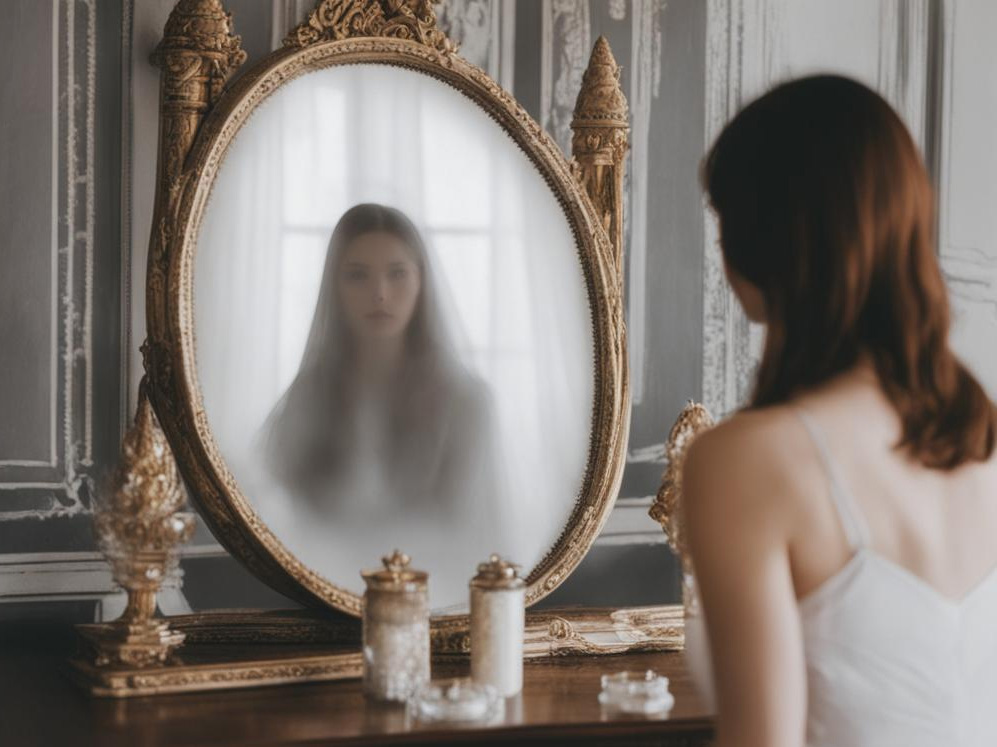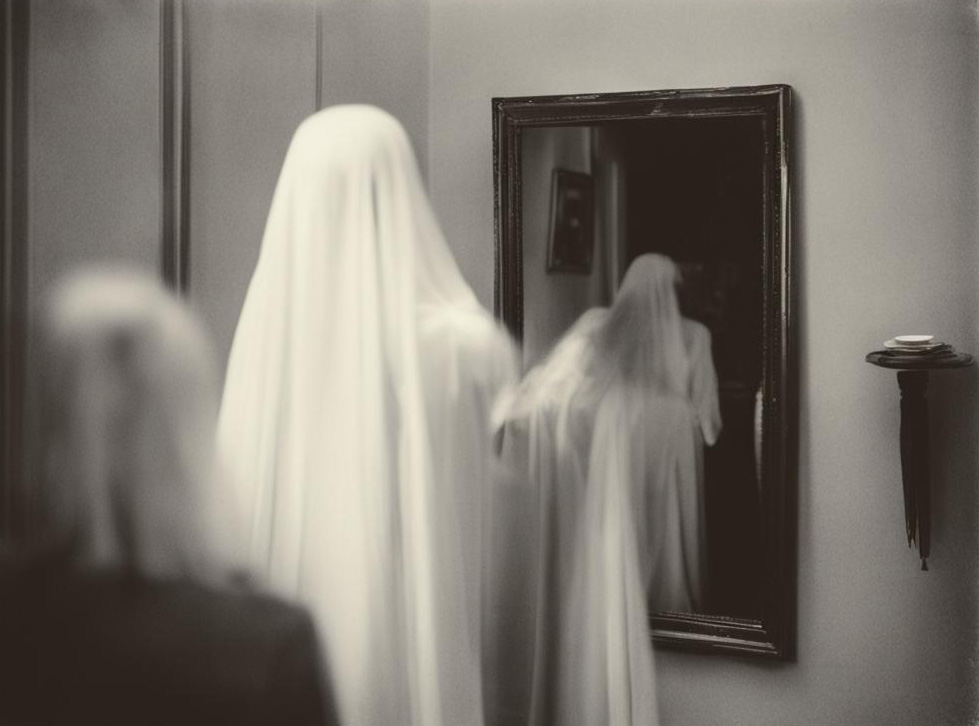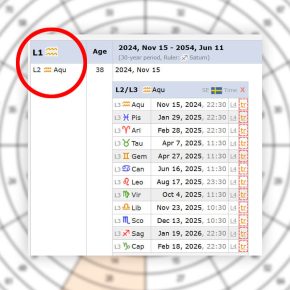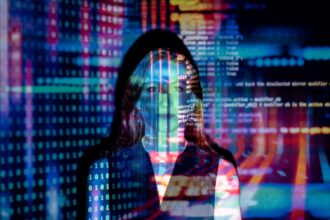Most of us glance in a mirror dozens of times a day without thinking twice. But mirrors have always held a strange power in human imagination. They’re not just pieces of glass that bounce back our reflection. They’re symbols of mystery, gateways in folklore, and even puzzles for science.
From ancient folklore to modern science fiction, people have wondered if mirrors might be more than they seem. Could they reflect not only our image, but something hidden? Another version of us, perhaps, on the other side of the glass?
Why Mirrors Feel So Uncanny
Mirrors have fascinated people for thousands of years. In folklore, mirrors are often seen as portals for spirits or doorways to other dimensions, worlds that resemble ours but are just slightly off. Some traditions even treat mirrors as “soul magnets,” capable of holding energy or trapping spirits when someone dies.
Ancient warnings about mirrors abound: don’t look into them at night, don’t let two mirrors face each other, and cover them after a loved one passes. Even in modern physics, mirrors aren’t as simple as they appear. At the quantum level, reflective surfaces can influence particles in ways that seem to defy distance and time, making them a natural metaphor for hidden connections.
And then there are the stories. People sometimes claim to see ghostly figures, strange versions of themselves, or flickers of something that “shouldn’t” be there. Most of it can be explained by tricks of light or an overactive imagination, but the sheer number of these accounts keeps the mystery alive.
Quantum Physics and Parallel Universes
Some scientists believe parallel universes could exist right alongside ours, separated by an incredibly thin barrier. The “Many Worlds” interpretation of quantum physics suggests that every choice splits reality into alternate timelines, an infinite number of parallel worlds, all coexisting.
If that’s true, what if mirrors act as a kind of interface? A reflection that looks like you, but isn’t exactly you. In another world, maybe you wore a different shirt today, or cut your hair yesterday. It’s a playful, but strangely compelling, idea.
Quantum entanglement, Einstein’s “spooky action at a distance”, adds to the intrigue. Entangled particles affect each other instantly, no matter how far apart they are. Some speculate (purely imaginatively) that this kind of connection could allow “leaks” between worlds, perhaps through reflective surfaces like mirrors.
Mirrors in Folklore and Superstition

In ancient China, people covered mirrors after a death to keep a soul from getting “caught.” In European folklore, mirrors at night were said to reveal spirits or doppelgängers.
Breaking a mirror has been considered bad luck since Roman times. Because mirrors were believed to hold part of the soul, shattering one was thought to damage that soul, bringing seven years of misfortune. To reverse it, people buried the pieces or threw them into a stream flowing south.
I grew up in a Slavic country, and I remember my grandmother always sprinkling salt over broken pieces of a mirror to ward off bad luck. I’m not sure if that’s specifically a Slavic tradition or just her own ritual, but salt has long been seen as a powerful purifier.
Mirror meditation is said to be even riskier, capable of shifting your mindset in unsettling ways and attracting unwanted energies or spirits that may cling to you.
In feng shui, mirrors come with their own warnings. A mirror facing the bed is believed to invite restless energy and even bad spirits into the room. And since mirrors symbolically “multiply” what they reflect, placing one across from your bed is thought to bring in the energy of a third person, an uninvited guest in your relationship.
Mirrors in Story and Imagination
Fiction has always used mirrors as a portal to the unknown. Lewis Carroll sent Alice through the looking glass into Wonderland. Countless myths and movies feature characters stepping through mirrors into secret worlds. We know it’s a story device, yet part of us wonders: What if? Why is it always the mirror? Why has this object, more than any other, been tied to other worlds? Maybe it’s just symbolism… or maybe there’s a tiny grain of truth hidden in the glass.”
A Glimpse Beyond the Glass
Whether or not mirrors are true portals, their power in culture and imagination is undeniable. They sit at the crossroads of science, superstition, and storytelling. Maybe that’s why standing before a mirror can feel strangely intimate, like you’re not just looking at yourself, but at something deeper. And why breaking a mirror feels unsettling, even if you don’t consider yourself superstitious. The feeling is just there, hard to ignore.
The next time you catch your reflection, think about what’s really staring back at you. Just your own face or a version of you from somewhere else, hidden behind a thin sheet of glass?
We may never know for sure. But mirrors remind us of one thing: reality is more mysterious than it seems, and there may always be more on the other side than meets the eye.












